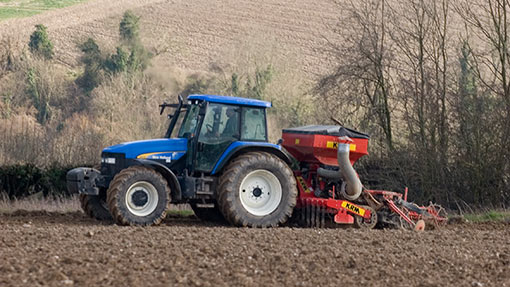Defra unveils further CAP greening rules

Further details on the three crop rule and Ecological Focus Areas as part of ‘greening’ have emerged with the publication of Defra’s latest leaflet on CAP reform implementation in England.
Additional details were unveiled by Defra secretary Liz Truss on Thursday (14 August).
Farmers who fail to comply face losing up to 30% of their direct payments.
See also: CAP reform at-a-glance guide for UK’s regions
To receive full payment, eligible farmers with more than 30ha of arable land must make sure they grow at least three different crops from January 2015.
They must also establish an Ecological Focus Area (EFA) equivalent to 5% of any arable land and seek to retain any permanent grassland.
The new latest details are available in Defra’s downloadable leaflet “The new Common Agricultural Policy schemes in England: August 2014 update.” Download the Defra leaflet.
Spring and winter varieties
For the first time, it confirms that spring and winter varieties of the same crop – as detailed by National List and the PGRO Recommended List – will count as separate crops for the purposes of the three-crop rule.
Varieties not listed as a spring or winter crop will be assumed to be a spring crop.
Fallow land
Land can be left fallow to help meet the crop diversification rule – so long as it is kept fallow throughout the inspection period of 1 May to 30 June.
Fallow land also being counted towards the EFA rules must meet the definition of fallow for the whole of the fallow period (1 January to 30 June).
It must also be at least 2m wide, have a minimum area of 0.01ha and not have any crop planted or sown on it during the fallow period.
Buffer strips can be as little as 1m wide – so buffer strips established for cross-compliance can be counted towards EFA requirements.
Implementation of the rules
Ms Truss said she wanted to make implementation of the rules as simple and straightforward as possible in recognition of farmers’ concerns about the impact on their businesses.
Whether a farmer grew traditional arable, potatoes, salads or speciality crops – Defra did not want them to be adversely affected. The three crops could be grown over the course of a year.
To minimise the disruption caused to businesses, a two-month inspection window of May to June had been set for the 5% of farms that would be inspected to ensure compliance.
This should cover the vast majority of crops in England. If any crops had been harvested before 30 June, stubble would count as evidence that a crop had been grown.
Hedges
Although the leaflet contains more information, more detail is yet to come – including the way hedges and hedge gaps must be measured so they count towards the EFA requirements.
Defra is also seeking clarification from Brussels about hedges next to ditches and non-arable land, with further announcements expected in October.
Ms Truss said: “I will press the commission for increased clarity and flexibility on greening, including a review of the three crop rule.
She added: “I will champion the interests of our farmers so that they can continue to concentrate on what they do best – producing top-quality, world-class food.”
Read more news articles like this

